Cultivation of home-based oyster mushrooms
Hello Guys..... @steemit meet again with me @teungkujamaika
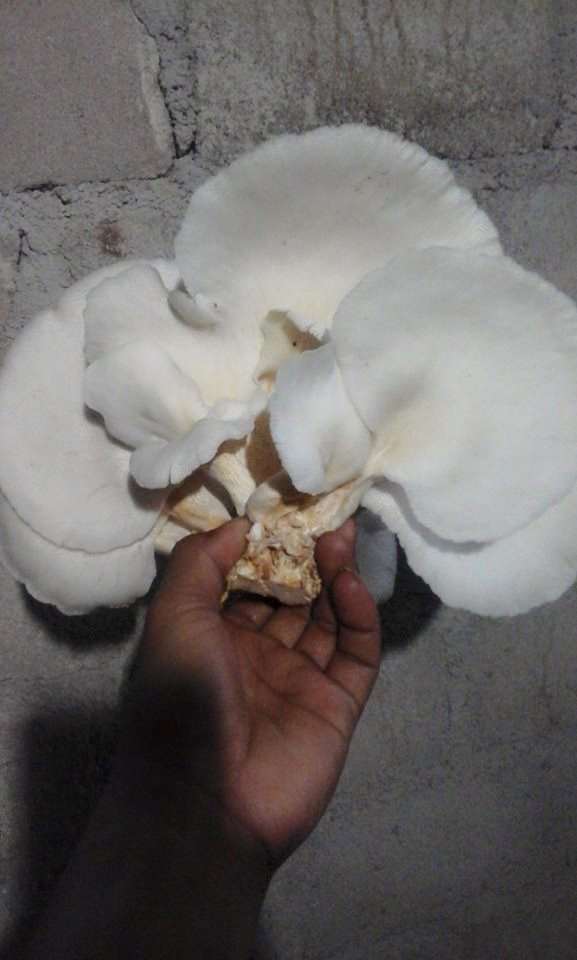
this time I want to introduce how to cultivate home oyster mushrooms
do you know what is oyster mushroom ..?
Oyster mushroom is a food fungus from the Basidiomycota group and belongs to Homobasidiomycetes class with the general characteristics of the white fruit body to the cream and the hood is semicircular like oyster shell with the middle part is slightly concave. Oyster mushroom is still a relative with Pleurotus eryngii and is often known as King Oyster Mushroom.
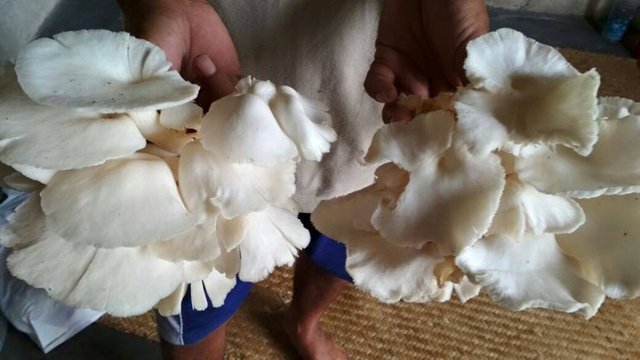
Oyster mushroom cultivation is suitable for tropical climates such as Indonesia. The investment required to start the cultivation of oyster mushrooms is quite cheap and can be done gradually. The hardest part is making baglog, planting medium that has been inoculated with fungus seeds.
The Latin name of oyster mushroom is Pleurotus ostreatus, belonging to the Basidiomycota group. It is called oyster mushroom because the shape of the canopy resembles the oyster shell. Semi-shaped white. In the wild, white oyster mushrooms are commonly found on rotted logs. Perhaps because of that, oyster mushrooms are often called wood mushrooms.
There are two main activities in the cultivation of oyster mushrooms. The first stage is to make the planting media and inoculate the seeds of mushrooms into the planting medium. So the media overgrown with white mycelium like cotton. The second stage is to grow the mycelium into a fruit body.
For newcomers, usually start cultivation activities by growing baglog into fruit flesh. While procurement, baglog ready to grow obtained by buying from other parties. Then after the cultivation effort grows and the volume is much, just try to make baglog own.
In this paper will, I will review the steps that must be prepared to start the cultivation of white oyster mushrooms.
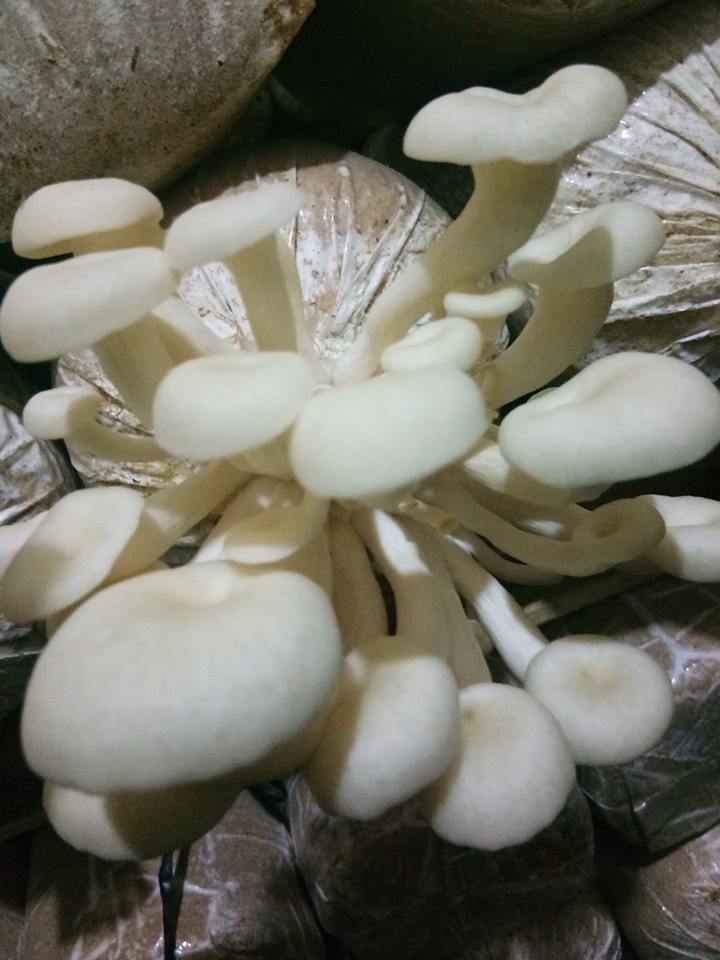
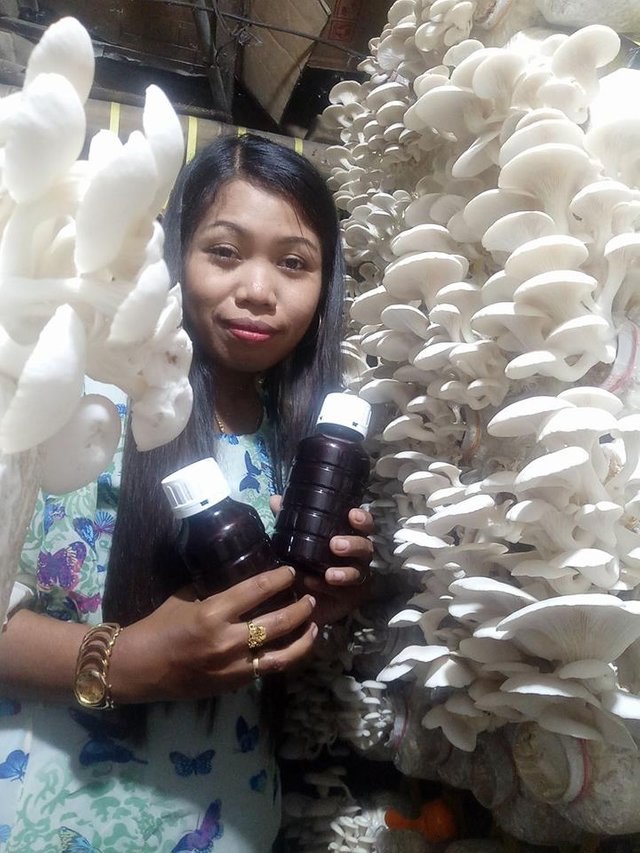
Setting up the kumbung
Kumbung or mushroom house is a place to take care of baglog and grow mushrooms. Kumbung is usually a building, the contents of rakaat to organize baglog. The building must have the ability to maintain temperature and humidity.
Kumbung is usually made from bamboo or wood. The wall of kumbung can be made from gedek or board. The roof is from tile or shingle. Do not use asbestos or zinc roofs, because the roof will bring heat. Medium part of the floor translation is not plastered. In order for the air used to flush the fungus can seep.
Inside the kumbung is equipped with a rack that grille is made of storied. The shelf serves to compile a baglog. Rack frames can be made of bamboo or wood. Shelves lined up. Between the shelves one with the other by the hallway for treatment.
The size of the space between shelves less than 40 cm, shelves can be made 2-3 levels. Width of shelf 40 cm and length of each segment 1 meter rack. Each of these rack segments can load 70-80 baglogs. The shelf requirements are adjusted to the number of baglogs to be cultivated.
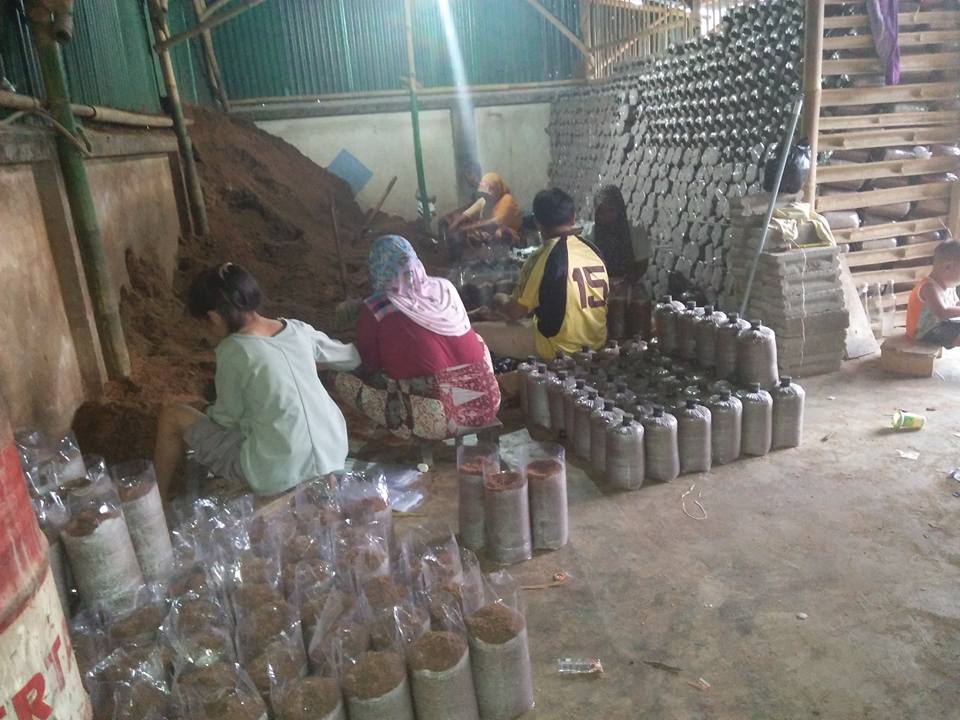
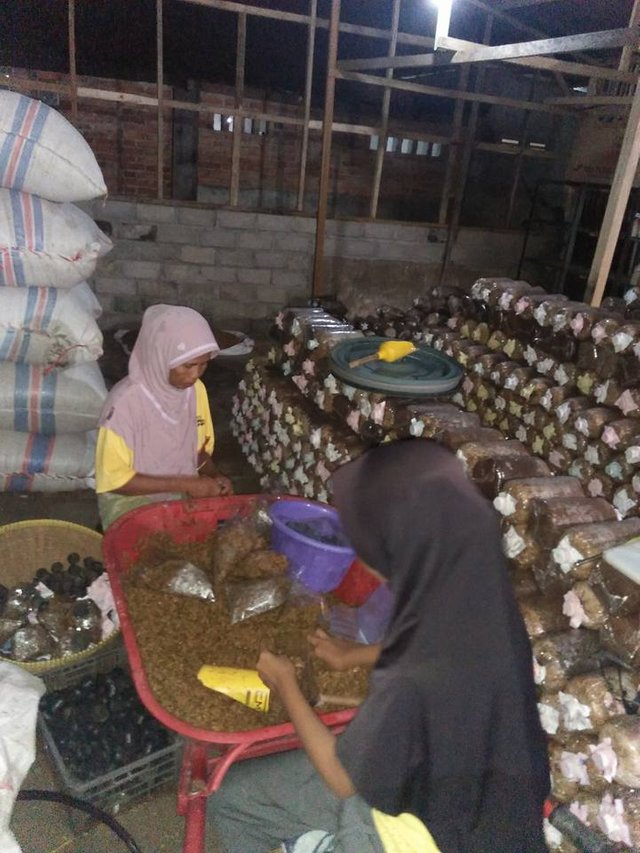
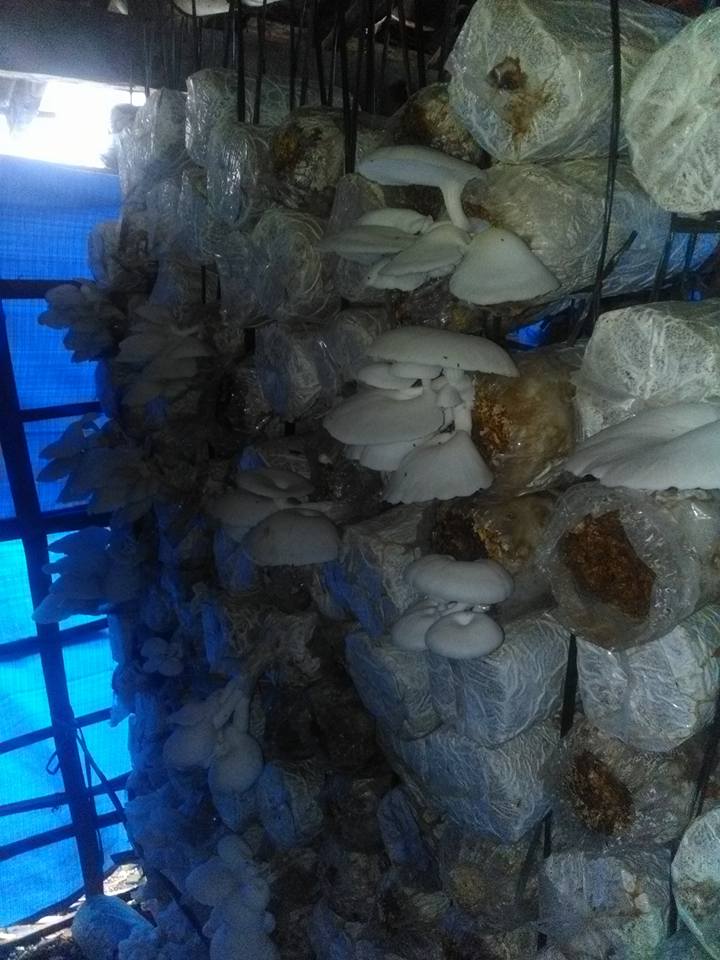 !
!
Before baglog put into kumbung, you should do the preparation first. Here are the steps:
- Clean the kumbung and shelves to keep the baglog from the dirt.
- Apply liming and spraying with fungicides on the inside of the kumbung. Let stand for 2 days, before baglog put into kumbung.
- After the odor of the medicine disappears, enter the baglog that is ready to be grown. The entire surface was covered with white fibers.